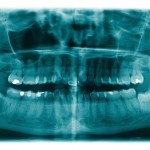
The removal of third molar teeth is a common procedure and dry socket and infection are well-known postoperative problems. Systematic reviews have recommended that the routine use of prophylactic antibiotics is not necessary. However, they continue to be prescribed in clinical practice.
The aim of this review was to assess the efficacy of systemic antibiotics to prevent dry socket and/or infection in patients undergoing third molar extraction.
Methods
Searches were conducted in the Medline/PubMed, Cochrane Central Register of Controlled Trials, Scopus, Science-Direct, Web of Science, Evidence-Based Dentistry, ClinicalTrials.gov, the EU Clinical Trials Register (clinicaltrialsregister.eu), the Spanish General University Board database of doctoral theses (TESEO), and Spanish National Research Council (CSIC) databases with no date or language restrictions. Placebo-controlled randomised controlled trials (RCTs) in patients undergoing third molar extraction were considered. Two reviewers independently selected studies, abstracted data and assessed risk of bias using the Cochrane tool. Relative risks (RRs) were calculated with inverse variance-weighted, fixed-effect, or random-effect models.
Results
- 22 studies (18 parallel group, 3 split mouth, 1 two-way crossover) were included.
- 21 used orally administered antibiotics and one IV administration.
- Penicillins or nitroimidazoles ( metronidazole,tinidazole) were used.
- 21 studies (3304 extractions) contributed to the meta-analysis.
- There were 167 cases of dry socket out of 1479 extractions (11.3%) in the control group and
- 79 cases of dry socket out of 1825 extractions (4.3%) in the experiment group.
- There was a statistically significant lower risk of dry socket in the antibiotic group RR= 0.43 (95%CI; 0.33 – 0.56, P < .0001).
- The number needed to treat (NNT) to prevent 1 case of dry socket = 14 (95%CI; 11-19)
- For penicillins ( 13 studies) RR= 0.40 (95% CI 0.27-0.59); NNT= 18 ( 95%CI; 14-129)
- For nitroimidazoles (8 studies) RR= 0.56 (95% CI 0.38-0.82); NNT = 11(95%CI; 7-20)
- Only 12 studies reported on adverse effects, 3 reported that none were detected. 345 patients out of 2164 (15.9%) reported some type of adverse reaction. The adverse effects were generally mild and short lived. For every 16 patients treated with antibiotics one would be expected to experience and adverse reaction, Numbers needed to harm, NNH= 16.2 (95%CI; 10.9-31.9).
Conclusions
The authors concluded:-
the preventive use of antibiotics, either penicillins or nitroimidazoles, does significantly reduce the risk of dry socket and/or infection in third molar extraction.
Comments
The 2012 Cochrane review by Lodi et al (Dental Elf – 15th Nov 2012) looked at use of antibiotics to prevent complications during tooth extraction. While their inclusions were slightly broader they were only able to include studies that involved the extraction of third molars. This new review includes 4 more studies than the Cochrane review and the findings are similar. As the Cochrane review noted the numbers needed to treat with antibiotics to prevent infection (14) and the numbers needed to harm ( 16) are broadly similar so they considered that in light of increasing concerns regarding antibiotic resistance the benefit form use of antibiotics is not sufficient to recommend their use in all patients undergoing third molar removal.
Links
Primary paper
Ramos E, Santamaría J, Gorka Santamaría G,Barbier, L, Arteagoitia I. Do systemic antibiotics prevent dry socket and infection after third molar extraction? A systematic review and meta-analysis. (Oral Surg Oral Med Oral Pathol Oral Radiol 2016;-:1-23)
Other references
Dental Elf -15th Nov 2012
Dental Elf – 26th Feb 2016
Third molars: single dose of preoperative antibiotic reduced infection

Third molar removal: antibiotics reduce risk of dry socket & infection https://t.co/mxjYv78vVG
Do antibiotics prevent dry socket & infection after third molar extraction?
https://t.co/mxjYv78vVG
Dry socket & infection risk after third molar removal reduced by antibiotics https://t.co/mxjYv6QV48
Derek: Did you mean to say both were in the control group?There were 167 cases of dry socket out of 1479 extractions (11.3%) in the control group and
79 cases of dry socket out of 1825 extractions (4.3%) in the control group.
Paul. Thanks for highlighting
79 cases (4,3%) in the Experimental group; 167 cases (11.3%) in the control group. I will amend text.
Antibiotics reduce the risk of dry socket after third molar removal https://t.co/mxjYv6QV48
Third molar removal: antibiotics reduced risk of dry socket https://t.co/mxjYv6QV48